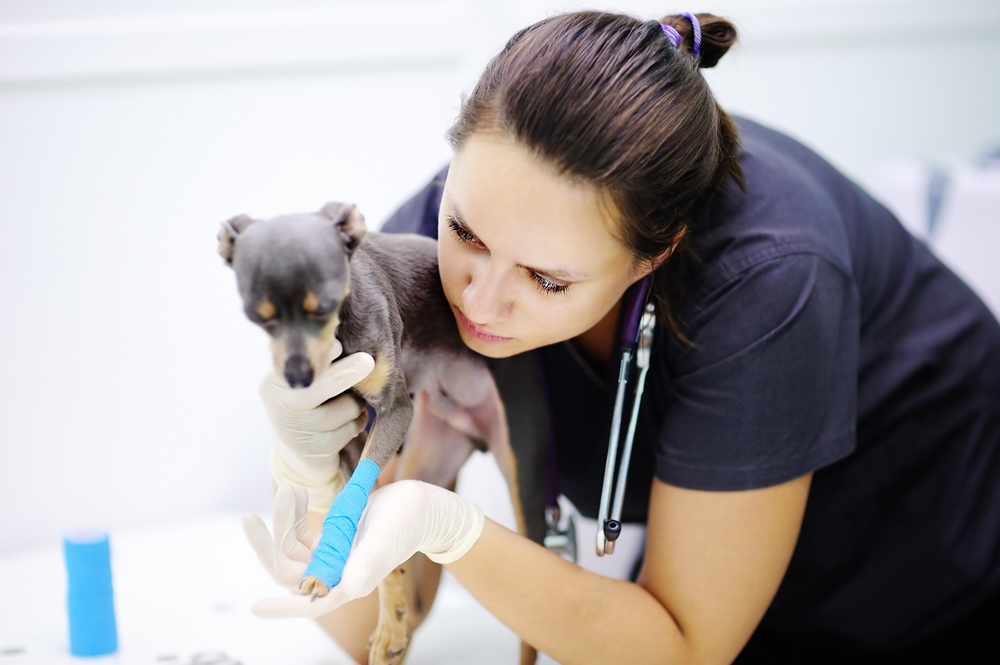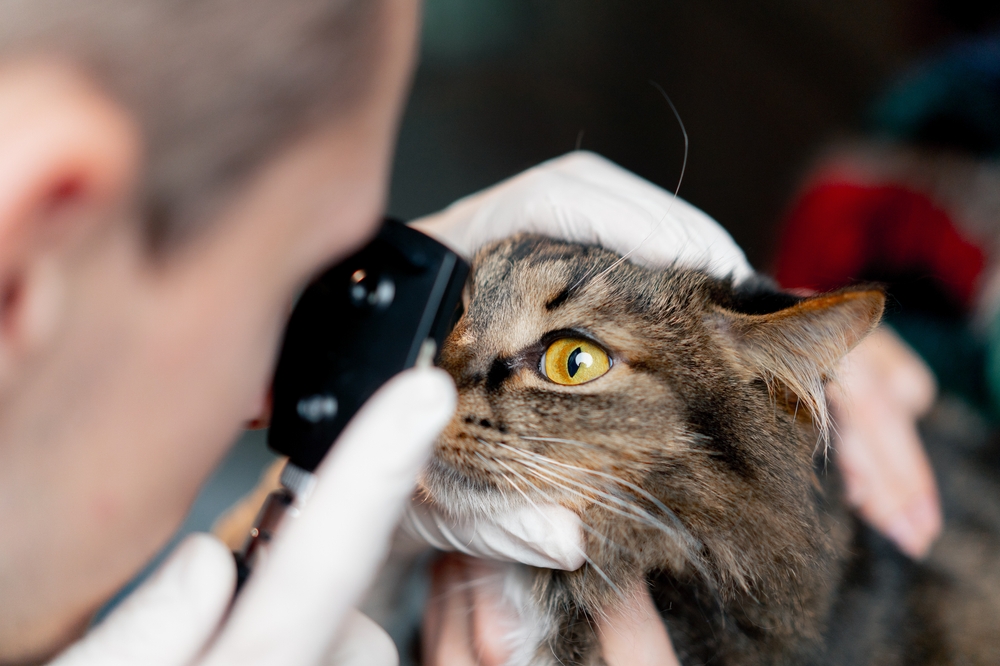When your pet is sick or injured, do you know how to decide whether they need urgent or emergent care? Both types of veterinary attention address unexpected and after-hours needs, but they are designed to handle different types of care. Knowing the difference can help you make the best decision when your pet is in need.
What is veterinary urgent care?
Urgent care is needed for situations that are serious but not life-threatening—the issues often need attention soon, but not immediately. If your pet has a problem that needs to be fixed in a day or two or can’t wait until Village Animal Hospital is open, urgent care provides convenient relief and comfort for sick and injured pets.
What pet conditions are treated at urgent care?
Urgent care clinics are equipped to handle most non-life-threatening and non-surgical conditions. If your pet requires more extensive care, the clinic may refer you to a 24-hour veterinary emergency center.
Some common conditions treated at urgent care include:
- Ear infections, itching, and allergies — If your pet is shaking their head, scratching their ears, or seems itchy and uncomfortable, they may be suffering from an ear infection or allergies. These conditions are not an emergency but should be addressed quickly because your pet will be stressed and uncomfortable.
- Minor skin abrasions and wounds — A small cut, scrape, wound, or paw pad injury is not likely an emergency, but will still need a veterinary visit to prevent infection and relieve pain.
- Vomiting or diarrhea without other signs — If your pet throws up or has loose stool once or twice, but is otherwise acting normally, their issue is typically urgent, not an emergency.
What is veterinary emergency care?
Emergent care is required when your pet’s life is at risk. In a true emergency, your pet would need immediate attention, often in minutes or hours, to prevent severe consequences or death.
What is a pet emergency?
While some emergencies are obvious, others may not seem immediately concerning. Common emergency scenarios include:
- Difficulty breathing — If your pet struggles to breathe, collapses, or has blue-tinged gums, that could signal a serious problem, like a blocked airway or heart issue.
- Severe trauma — If your pet is hit by a car, attacked by another animal, or falls from a high place, they could have internal injuries that need emergency medical intervention.
- Seizures — Continuous or severe seizures can be life-threatening and require immediate care.
- Uncontrollable bleeding — Bleeding from any body opening can signal internal hemorrhage.
- Sudden paralysis or extreme weakness — Unexplained mobility loss can indicate a spinal cord injury, stroke, shock, or internal bleeding.
- Known toxin ingestion — Toxicity signs may not appear until hours or days after exposure. Seek immediate care and intervention at an emergency center.
How to decide whether your pet needs emergent or urgent care
Consider your pet’s signs and how quickly you need to get them to the vet. A situation that needs action right away and could be life-threatening is an emergency. If the issue is serious, but your pet seems stable (i.e., they are alert, eating, drinking, and otherwise behaving normally), you may have time to seek urgent care.
Every second counts: Be prepared for unexpected veterinary needs

Life with pets is never predictable. Stay one step ahead of unexpected health needs with our preparation tips, including:
- Know your veterinarian’s normal hours — Ensure you know our normal operating hours. We can accommodate emergency and urgent cases during normal daytime business hours, but we are closed on weekends.
- Post important contact information or save it in your phone— Keep our contact information and that of the nearest veterinary emergency center in an easily accessible location.
- Trust your instincts — You know your pet best. If something concerns you or doesn’t seem quite right, err on the side of caution and seek professional advice. Our Village Animal Hospital staff and veterinary emergency care teams will happily provide expert guidance and triage your pet’s condition over the phone.
Urgent and emergent veterinary care services play a vital role in the health of Wichita pets. Whether your pet’s condition is minor or major, understanding when and where to go can help you think clearly and accurately during an emotionally challenging time, ensuring the best possible outcome for your pet.
Is your pet experiencing a time-sensitive health condition? The AAHA-accredited Village Animal Hospital team is fully equipped and prepared to handle pet emergencies and urgent care needs during normal business hours. Contact our caring team for more information.








Leave A Comment